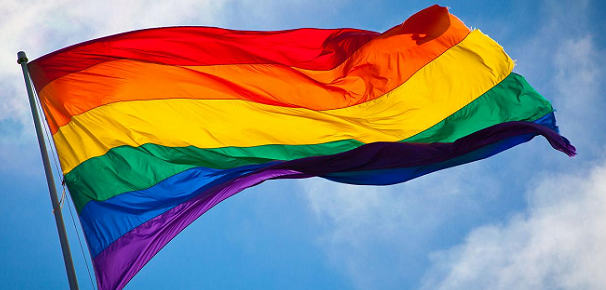
By Edita Bardhi
Opinion Editior
Last Thursday East Stroudsburg University’s Wellness Education & Prevention Program sponsored the first annual, “Closing the Gap: Health Disparities in the LGBTQ community” at 6:45 p.m.
As titled, this event was held to spread awareness of the many health disparities that exist within the LGBTQ community, and what people can do to help.
In the front entrance of Stroud 113, colorful decorations were laid out to represent the community itself. Door curtains, bright lights and a rainbow-colored tablecloth were all used as décor.
Students were able to pick a snack of their choice, whether it may be chocolate chip cookies, candy or a water bottle. Also, a rainbow-designed basket was filled with free rainbow-colored pencils and hand bands labeled “Trans Pride.”
With a count of 16, students were presented with the documentary “Southern Comfort.” This particular film demonstrates the final year of transgender Robert Eads. Eads was born female and later transitioned into a male.
However, Eads’ transition was not his only battle. Diagnosed with ovarian cancer, he was rejected the proper care from two dozen doctors.
allegedly, the doctors wanted to protect their reputation. They feared that treating a transgendered patient would only hurt their reputation.
“After finally getting a doctor that would treat him, Mr. Eads died because the cancer had metastasized. It had become too advanced for him to get it treated,” said Presenter and ESU Intern Annette Montalvo.
Students were told this prior to seeing the documentary, however that did not stop the students from becoming engaged.
Snacking on cookies, candy, and a bottle of water students watched the documentary with curiosity of what would happen next. Was Eads going to give up?
The next two and half hours was dedicated to watching the film. Then, Montalvo hosted a small discussion where students were asked various questions and encouraged to share their views.
“I thought it was kind of terrible that no one wanted to help him,” said one student from the audience.
Soon afterwards, Montalvo educated her audience on some of the disparities. One particular subject discussed was referenced to the various health problems that transgenders may encounter. These health problems include HIV, STD’s and higher levels of substance abuse.
“Did you guys notice how much Robert smoked? They are 200 percent more likely to smoke. For every non-LGBTQ person that smokes, there are two LGBTQ people who do smoke. Thirty thousand LGBTQ individuals die each year just from cancer-related deaths,” said Montalvo.
In addition, students learned the likelihood of transgenders getting abused from their partners and not reporting it.
“Does anyone know what outing is? If someone does something and you’re in a relationship with this person, they have power over you,” said Montalvo.
The LGBTQ community often experiences outing from other individuals; their reputation can be used against them. In this case, their partners will tell everyone of their gender, whether they are lesbian, gay, bisexual, transgender or questioning.
Moreover, minority stress, socialization, and marketing are different types of stress directed toward the community.
“It’s even worse when you’re LGBTQ because not only do you have to feel the issues of whether you are female, black, Hispanic but you have other minority statuses. It further compounds the issue,” said Montalvo.
Furthermore, doctor visitations are a serious matter with the LGBTQ community. Individuals do not feel comfortable talking to their doctors about health issues due to their gender. This is referred to as “cultural confidence.”
“When you go a doctor’s office, you are expecting that from them, but the issue with the LGBTQ community is that they’ll go to the doctor and they won’t come out to them because of the minority stress. They are scared. They have that stigma. But if you don’t come out to your doctor, then your doctor doesn’t know what they have to treat,” said Montalvo.
Oddly enough, there are still some doctors who still don’t understand the LGBTQ community. According to Montalvo, a transgender individual will spend half of his or her appointment simply explaining what it means to be transgender.
Many students believed to best help the LGBTQ community, people can change their perspectives on the community. Also, doctors and nurses can receive more training, rainbow stickers can be displayed in more places than one, more LGBTQ safe spaces can be around campuses, and speaking up to doctors and professors being addressed of the issue.
“At the end of the day, we are the strongest advocates. You have to fight for yourself. You have to be an ally. If you are not LGBTQ, then at least be an ally,” said Montalvo.
After the discussion, a raffle occurred where the winner won a rainbow-colored basket filled with candy goody bags, a rainbow decorated tumbler bottle, flags, and two educational books on the LGBTQ community.
Students enjoyed their time spent at the event. Some came to support the community while others were simply interested.
“I think I learned more about the gender side about the disparity,” said senior Gabi Wilder.
“I think it was very well decorated. I am glad that they had it at all really, and I am glad that it was in Stroud because that is kind of like a central location for people,” said sophomore Caity Stout.
“I believe to be a really big advocate for the LGBTQ community, so any chance I get to gain or spread my own knowledge I go to it, I show up,” said sophomore Ben Ace.
Email Edita at:
ebardhi@live.esu.edu

